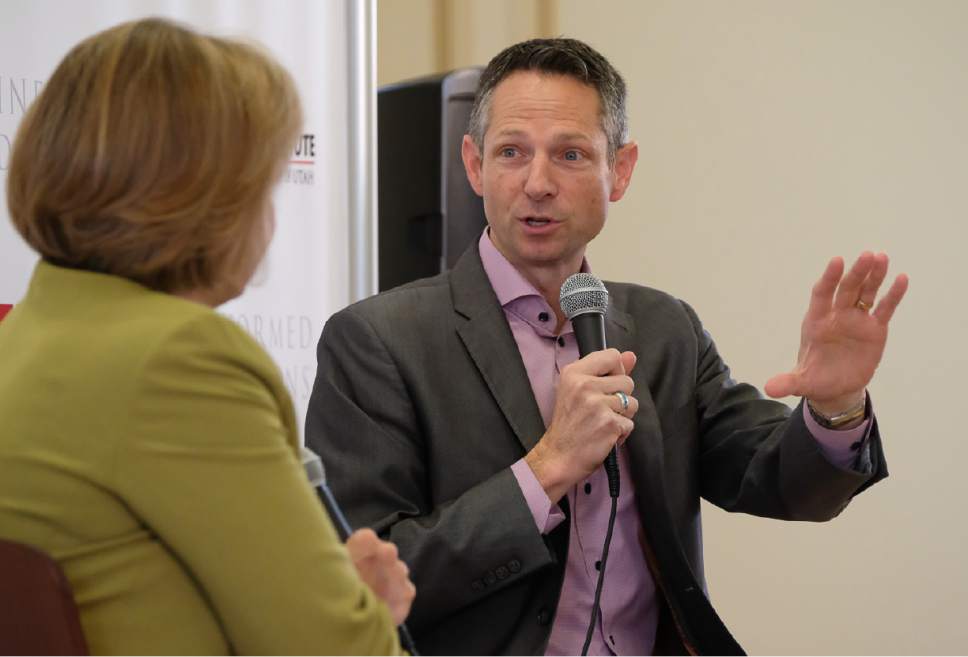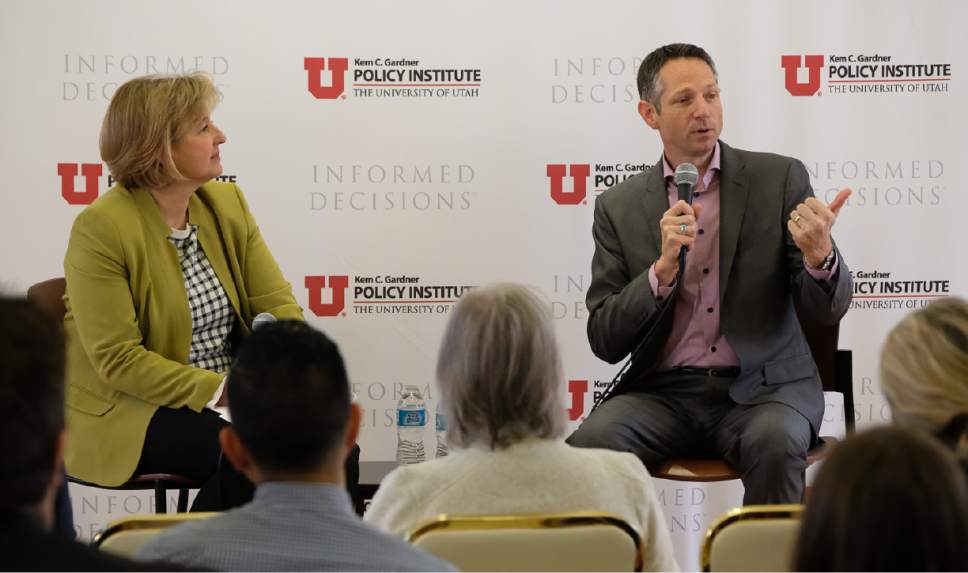This is an archived article that was published on sltrib.com in 2017, and information in the article may be outdated. It is provided only for personal research purposes and may not be reprinted.
Trade with Mexico brings hundreds of millions of dollars into Utah each year, but the tense political climate puts the state's economy at risk, experts warned Wednesday.
Mexico is the state's fourth largest international export partner and second largest international import partner, according a fact sheet provided by the Kem C. Gardner Policy Institute at the University of Utah.
At a discussion hosted by the group Wednesday morning, World Trade Center Utah President and CEO Derek Miller expounded on — as institute Director Natalie Gochnour put it — the "frosty relationship" between the U.S. and its southern neighbor.
"It's important for all of us, and also for our president, to recognize that words have meaning and words matter," Miller said. "You can't just say things and have them sort of float away, especially in the world of international affairs, the world of international business and international diplomacy."
People mistakenly think of trade as black and white, Miller said, but they need to be "more nuanced" in their thinking and "give credence to the complexity that is the reality."
Products are shipped back and forth over borders constantly, and a multitude of countries may contribute to a final product — such as a phone.
The majority of commodities exchanged between Utah and Mexico are transportation products, but textiles, agricultural goods and natural resources such as coal also contribute to the revenue. Ten years ago, Utah made $250 million in yearly revenue from exports sent to Mexico, Miller said, but more recently that number has tripled.
If he had the ear of President Donald Trump, Miller said, he would tell him to "look to Utah as the model to accomplish what you're advocating," particularly, more U.S. companies manufacturing more products in the U.S. and selling more goods to consumers outside of it.
Nearly one of every four Utah jobs is supported by international trade, Miller said, and what companies need "more than anything else" is certainty and predictability, or rule-based trade.
Miller supports a "revamp" of the North American Free Trade Agreement, he said, because it is more than 20 years old and needs updating. But ostracizing trade partners causes economies to implode, he said, pointing to Brazil and Argentina as examples.
Trump's pledge to build a wall between the U.S. and Mexico seems to resonate with many Americans, Miller said, and stems back to problems with the current immigration system.
"To say that we have a broken immigration system would be speaking too highly of the immigration system that we have," Miller said. "It is not just broken, it is upside down."
Illegal immigrants — "some with good intentions, some with nefarious intentions" — come to the United States for opportunity and are lumped together regardless of what kind of people they are, Miller said, because there isn't "an efficient legal way to get here."
Many Americans are concerned with securing the border, Miller said, and thus, support building the wall.
But tariffs targeted at one country — like the flat 20 percent tax on Mexican goods that was originally proposed to pay for the wall — run the highest risk of inciting a trade war because it "feels personal," Miller said.
"A trade war is like a regular war," he said. "There are no winners."
Debates in Washington, D.C., frustrate Miller, he said, because they include only proposals to punish companies that send jobs overseas or bribe companies to bring jobs back to the U.S.
Instead, Miller believes, lawmakers should debate how to "create a business environment in this country where companies want to keep their jobs, will keep their jobs and will be successful."
Miller explained his philosophy on trade relationships by recalling something he was told by the late Israeli leader Shimon Peres: "The key to lasting peace is economic prosperity."
Although trade allows people to make money and live comfortably, Miller said, it has a "higher purpose" in that "you tend to do business with people you know and trust, and you tend not to go to war with people you do business with."
Twitter: @mnoblenews





